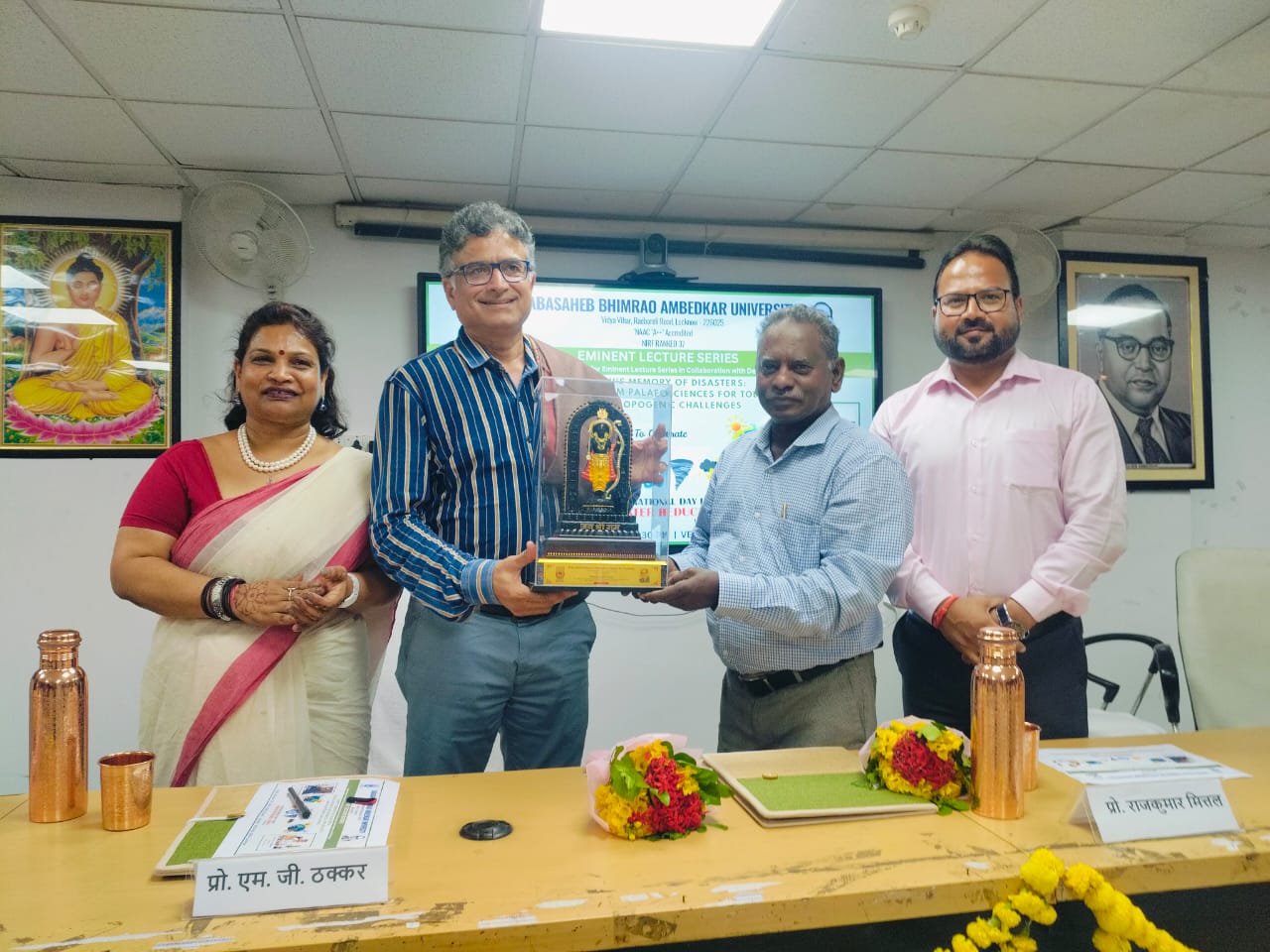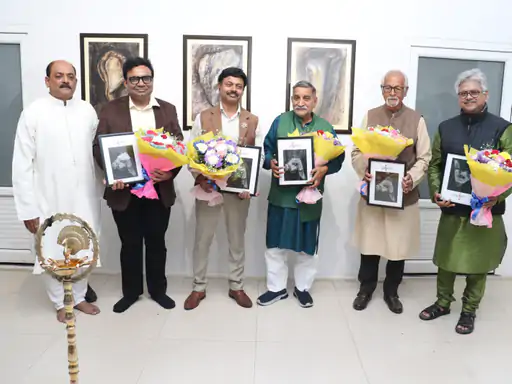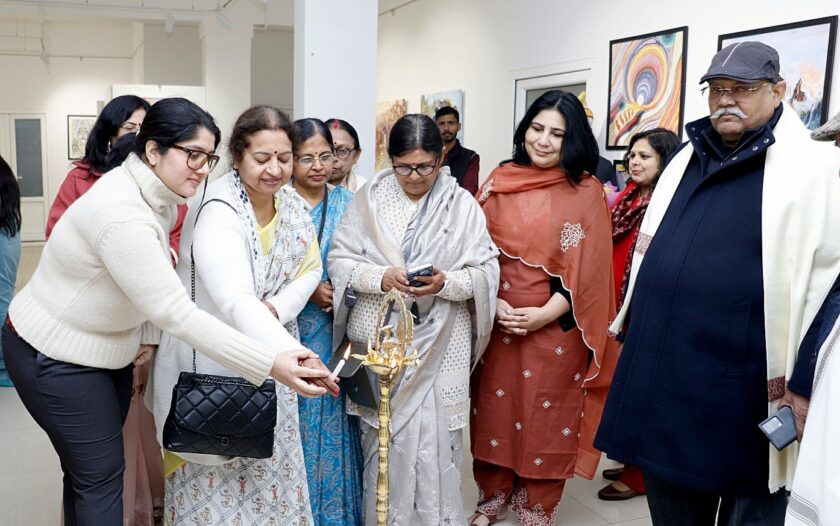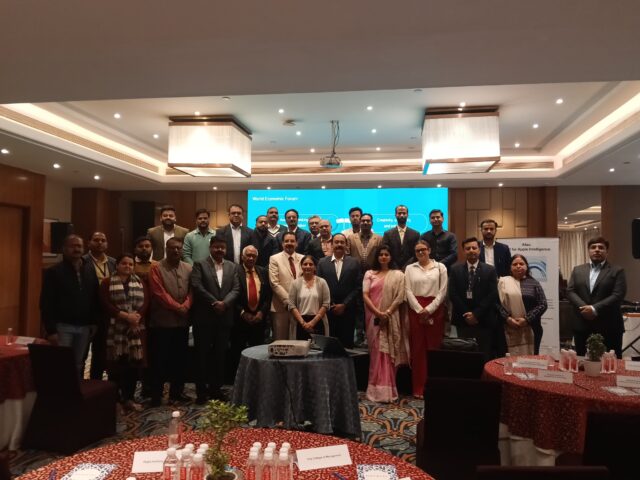Lucknow: A special lecture was organised on 14th October on the topic ‘Earth’s Memory of Disasters: Lessons from Palaeosciences for Today’s Anthropogenic Challenges’ under the joint aegis of the Eminent Lecture Series Committee and the Department of Geology at Babasaheb Bhimrao Ambedkar University. The program was presided over by the Vice-Chancellor, Prof. Raj Kumar Mittal. The keynote speaker and chief guest of the event was Prof. M. G. Thakkar, Director, Birbal Sahni Institute of Palaeosciences. Apart from this, Prof. S. Victor Babu, Dean of Academic Affairs, Prof. Shilpi Verma, Chairperson of the Eminent Lecture Series Committee and Prof. Narendra Kumar, Head of the Department of Geology were present on the dais.
The program commenced with the ceremonial lighting of the lamp and floral tribute to Babasaheb Ambedkar, followed by the university anthem. The organizing committee extended a warm welcome to the Vice-Chancellor and the chief guest by presenting floral bouquets. At the beginning, Prof. Shilpi Verma welcomed all the dignitaries and participants and apprised everyone of the objectives and outline of the lecture. The anchoring was done by Dr. Shikha Tiwari.
While addressing everyone, Prof. M. G. Thakkar, Director of the Birbal Sahni Institute of Palaeosciences, stated that change is an essential part of both the universe and our galaxy. He elaborated on the interrelationship between different spheres of the Earth namely, the lithosphere, atmosphere, hydrosphere, and biosphere and emphasized the importance of maintaining balance among them. He also explained the unique characteristics of the Milky Way Galaxy and the scientific aspects of the physical changes occurring within it.
Prof. Thakkar further discussed the distinction between the boundary of the solar wind and interstellar space, explaining how this region influences the stability and energy flow of our solar system. He shed light on the functioning of tectonic plates and described how Earth’s internal dynamics such as crustal movements, mountain formation, and volcanic activities constantly reshape the planet’s surface.
He also differentiated between human-induced and natural disasters and hazards, emphasizing that the study of disasters is not only crucial for understanding their causes but also for finding ways to mitigate their future impacts. Prof. Thakkar highlighted that every change occurring on Earth, no matter how small, contributes to the evolution of ecosystems and life itself. He encouraged students to develop a deeper understanding of the scientific mysteries of Earth and the cosmos, as such awareness forms the foundation of environmental conservation and sustainable development.

During the session, the chief guest interacted with students and faculty members, answering their questions with great clarity and simplicity.
he program concluded with the presentation of a memento and a shawl to the chief guest as a token of gratitude. At the end, Dr. Shikha tiwari proposed a vote of thanks.
The event was attended by deans, heads of departments, faculty members, university officials, research scholars, and students from various faculties.










